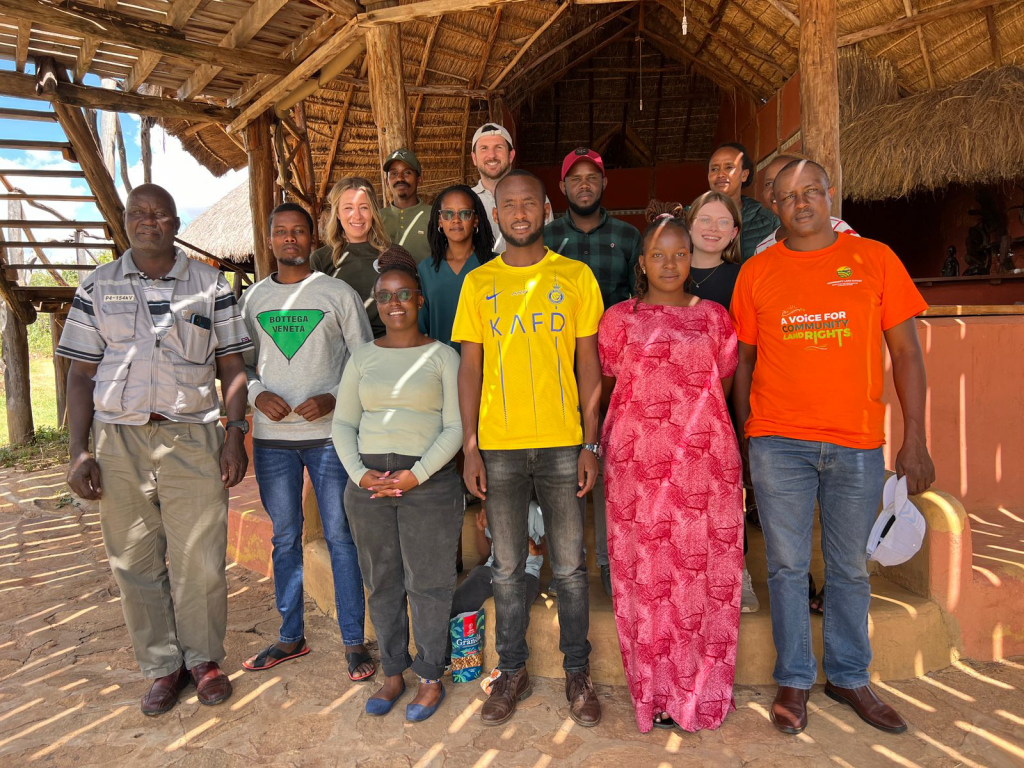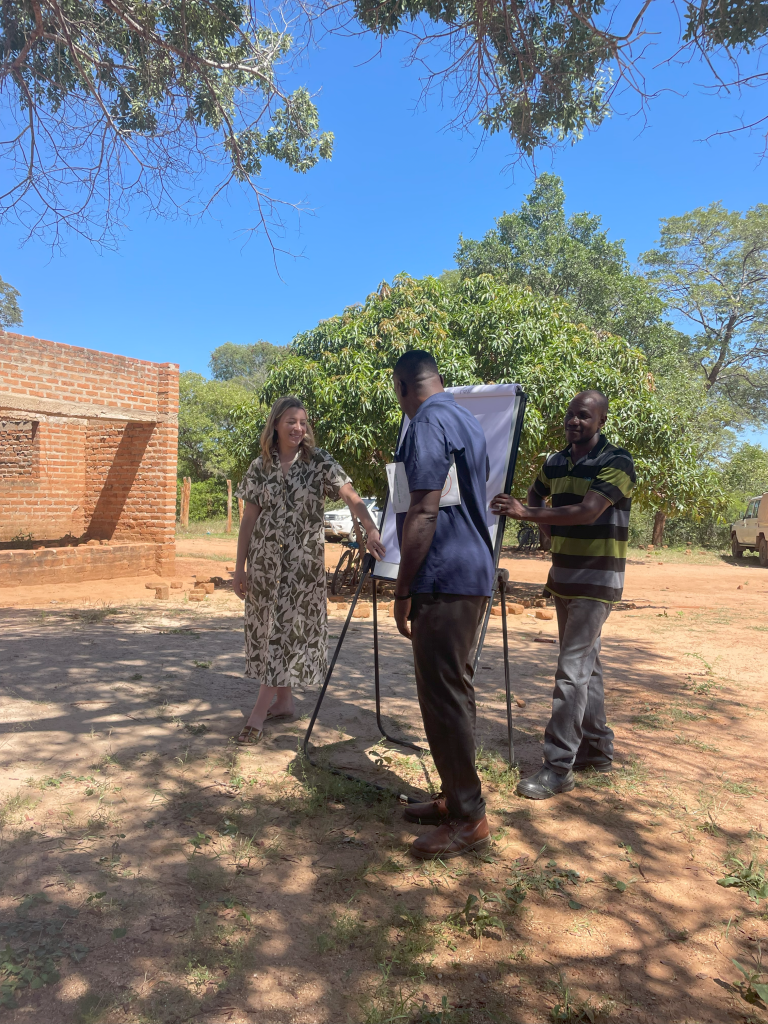By Dr Helen Underhill
How does meaningful impact emerge over time in global conservation and development research? A recent discussion among researchers and practitioners within GDI highlighted just how complex, relational, and often invisible this work can be.
Gathering as part of the Research for Transformation Lab initiative (look out for our official launch in Autumn 2025), participants at the ‘Lab Lunch’ in June 2025 reflected on community partnerships, long-term engagement, and a commitment to rethinking traditional models of research impact.
Key takeaways:
- Process over product: Research is not just about outputs—the process of listening to communities and local groups / organisations / partners before doing is key to impact.
- The importance of being embedded and responsive: Being involved with organisations enables researchers to respond to what is needed (including the type of evidence and data) to move policy and practice forward.
- Patience pays off: Impactful, equitable and ethical research takes time. Trust within relationships take time to build, but it is the difference and is worth the investment.
- Not all impact has to come from the academic: Researchers don’t always have to lead impact efforts. Instead, they can collaborate with those better placed to act.
- Impact is often built informally: Meaningful contributions can emerge outside of one’s official work agenda but should be recognised within the wider institutional research context.
Building impact through partnerships
Dr Charis Enns has worked across Southern and Eastern Africa, including DRC, Cameroon, Zambia and Kenya. Lately, she’s been drawn to how large-scale land investments shape people’s relationships with land, nature, and resources—and how scholars can act as allies, not just observers, in ensuring equitable outcomes.
In her reflections on two projects, both funded outside the typical university institutional structures, she argued “research won’t have impact if it’s not embedded in the organisations that will use it.”
Collaborative partnership building
As part of a major international initiative across 15 countries, Dr Enns is part of an 8-year project in Zambia exploring alternative models of conservation that enable communities to continue living with and using nature sustainably—without displacement. This includes a novel model of community conservation supported, in part, by sustainable wild meat hunting, a practice that is regionally accepted but remains controversial within global conservation discussions.
Charis’ insights revealed that impact depends on the recognition within the project that different partners want different things. This understanding is necessary because it matters for how the work is done and how it unfolds… e.g. working towards an evidence-based publication for policymaking will look different to the work that will produce practical tools for communities.
Similar insights emerged from her work supporting inclusive conservation initiative in Kenya. Working closely with IMPACT (Indigenous Movement for Peace Advancement and Conflict Transformation), Charis serves as an unpaid technical advisor, a relationship she believes is having real-world impact because it grounded in her listening to the movement and their needs: she supports by filling capacity gaps, grant writing and co-creating outputs. Reflecting on the process of being embedded within the organisation and how their goals drive how they work together, Charis offered a question that is critical for all researchers: “how are we ensuring we listen before we do?”
Impact as relationships, not just output
The partnerships Charis explored were grounded in co-creation, collaboration and conversation from the outset and show how researchers can align their political and practical contributions. The reflections also revealed a recurring theme: impact is not just what gets published or cited—impact is about the relationships that are built and the ways institutions, communities, and policies shift over time. Within the discussion that followed, Charis also argued that we need much more recognition, including within development research, that “the UK model of impact is deeply colonial” because often assumes that research will directly drive policy change, without asking if the policy is needed, appropriate, or resourced.
Broader reflections: activism, evidence and REF2029
Building on Charis’ reflection on activism within her work grounded in listening to the communities and partner organisations with whom she is working, the conversation turned to how impact is measured and valued in academic systems like the REF (Research Excellence Framework). We considered the division within the current research system that often splits “academic work” from “impact work”—a divide that doesn’t reflect how change actually happens and, arguably, perpetuates negative perceptions of activist-scholarship (link).
- Participants acknowledged that REF2029 will trace research contributions from as far back as 2001, a way of recognising the long arc of impact.
- More understanding is needed of how to you trace impact that’s rooted in relationships rather than published outputs, particularly given case studies are required to cite published research that underpins the impact.
- Participants discussed the need to evidence contribution without burdening partners—especially when much of the impact is intangible or collective.
- The emphasis shouldn’t be on proving “what I did,” but on understanding what changed and why, and identifying the many who contribute within the process.
- There’s a difference between attribution and contribution. The REF requires the former and is largely centred on an individual whose publication record presents them as the driving force behind the impact that follows. Contribution, on the other hand, would be a healthier way to think about research impact given it so often depends on broader collaborations.
Final thoughts: shifts, transformations and impactful conversations
This discussion was a powerful reminder that impact isn’t a deliverable—it’s a commitment. It requires time, trust and connection. And it often requires working beyond formal job descriptions.
As we move toward REF2029 and beyond, the challenge will be to recognise and reward forms of impact that are collaborative, embedded, and often invisible—the kind that don’t always come with a policy briefing, but quietly transform the way people live, work, and care for their environments.
- We need honest conversation about research culture: many impactful projects aren’t asking the kinds of questions that lead to high-impact journal articles… Meanwhile, the conceptual questions that do excite academics often aren’t relevant to community needs or policy implementation.
- This disconnect reinforces the bias that “real impact” = policy change, rather than community benefit, relational shifts, or new governance models.
- How do the structures around research (funding awards, proposals, design, ethics, monitoring, reporting, data collection, evidence, outputs…) enable or constrain a model of research that integrates impact from the project conceptualisation?
- What changes are needed within the system to enable slow / slower research where relationships are cultivated and sustained with patience, equity and trust?
Join us to explore these topics and of the provocations we will consider in the coming months…
Note: This article gives the views of the author/academic featured and does not necessarily represent the views of the Global Development Institute as a whole.
Please feel free to use this post under the following Creative Commons license: Attribution-NonCommercial-NoDerivatives 4.0 International (CC BY-NC-ND 4.0). Full information is available here.



